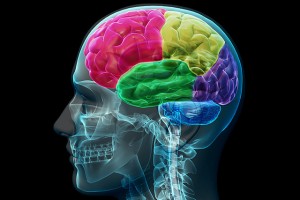 The days of rash lobotomies and electro-shock therapy as “cures” for mental illness may be gone, but the stigma surrounding these diseases are not. As an individual with first-hand experience, I’ve faced some of the most interesting and unfortunate misconceptions out there.
The days of rash lobotomies and electro-shock therapy as “cures” for mental illness may be gone, but the stigma surrounding these diseases are not. As an individual with first-hand experience, I’ve faced some of the most interesting and unfortunate misconceptions out there.
In addition to having to address these conditions, stigmas give patients even more to worry about. Not only is mental illness a challenge in itself, but so is the prospect of feeling “normal” in a world where people think that you’re not. Here are four of the most frustrating stigmas that I’ve faced on my own personal journey.
1. People with mental illness are violent.
We’ve all heard those horrible stories of individuals on the news who commit crimes, and then end up pleading insanity. It’s an unfortunate fact that untreated mental illness can drive some people to heinous acts, but to assume that everyone with these ailments is deranged is ignorant.
2. Mental illness is all ‘in the head.’
Tens of millions of Americans are impacted by mental illness, according to the U.S. National Institutes of Health. Unfortunately, about half of these individuals never seek treatment — would it too be hard to believe that the stigma contributes to this fact? The failure to accept and acknowledge mental illness fuels is a massive roadblock in the journey toward progress.
3. You can’t do anything about it.
With the right treatment, most adults and children living with mental illness can move into recovery, according to the National Alliance on Mental Illness. Whether it’s schizophrenia or depression, there are strides being made in medicine each day that are improving the lives of people with these conditions.
4. It’s ‘abnormal’ to have a mental health disorder.
I’ve heard it all — “You’re weird” and “It’s not normal” are some of the most common phrases that people say in response to mental health illnesses. You could call it a lack of understanding, but I find it to be just plain ignorance (and not to mention, rude). As of 2010, there are more than 10 million Americans living with Major Depressive Disorder. About 8 million have Post-Traumatic Stress Disorder, and 7 million have anxiety. If I’m abnormal, so are a great deal of Americans — and maybe that’s okay.
Studies have suggested that stigmas related to mental illness are fairly widespread, according to Psychology Today. However, that doesn’t mean that you need to contribute to the issue. Educating yourself on the actual facts behind mental illness can help you become a part of the movement to stamp out stigmas.
Sources
“Mental Health by the Numbers.” National Alliance on Mental Illness. Retrieved May 18, 2015.
“Statistics.” National Institutes of Mental Health. Retrieved May 18, 2015.
Davey, Graham. “Mental Health and Stigma.” Psychology Today. August 20, 2013.

One comment